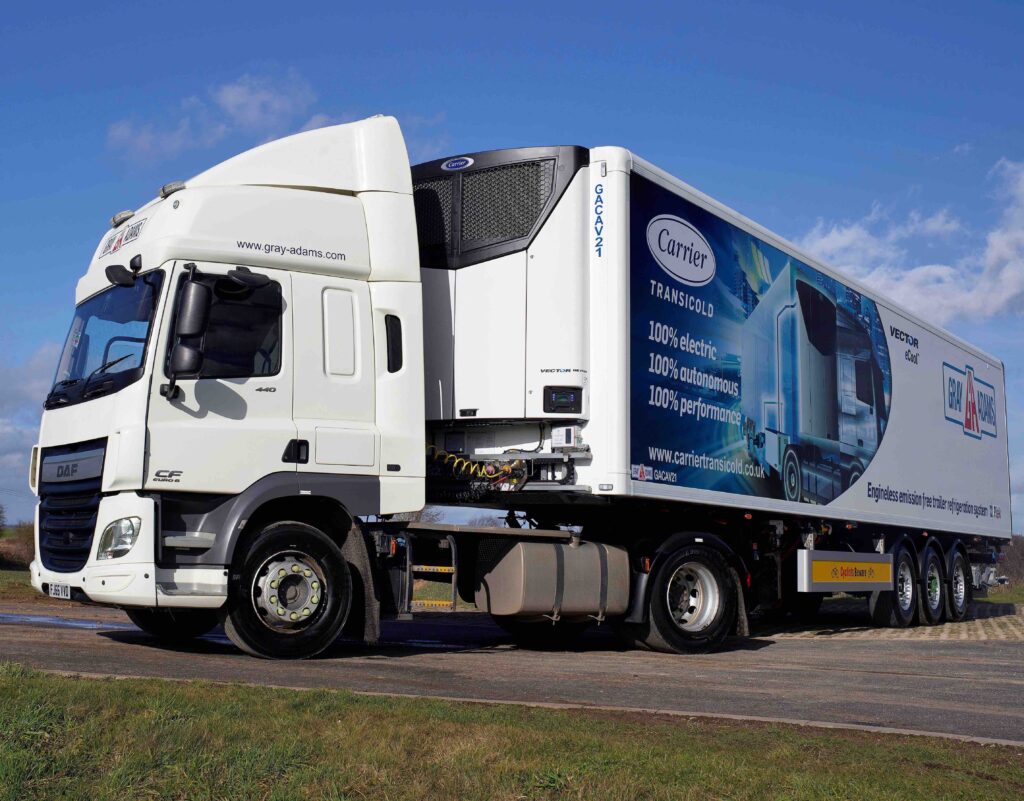Warrington, UK: Carrier Transicold’s Vector E-Cool is the first technology of its kind available to UK customers without the requirement for individual vehicle approval testing, Carrier Transicold says.
Launched in 2020, When Carrier Transicold launched the autonomous Vector E-Cool there were no standardised, technical regulations related to the system’s axle regeneration technology, so every new unit had to undergo individual vehicle approval testing.
Working closely with Gray & Adams, the Driver & Vehicle Standards Agency, the Vehicle Certification Agency and following evaluation at the Motor Industry Research Association, the Vector eCool is now the first of its type that does not require this time-consuming and costly procedure.
“When Carrier Transicold broke new ground with the Vector eCool, axle-regeneration technology in this configuration was something the industry hadn’t seen before,” said Scott Dargan, managing director UK and Northern Europe, Carrier Transicold.
“We understood that it would take close collaboration with our partners and government agencies to get to this point and it has been two years of hard work. But just as we were the first to launch this type of all-electric technology, we are proud to be leading the way once again, setting an important industry benchmark for accessible, sustainable solutions that will create a roadmap for others to follow.”

The technology behind the Carrier Transicold Vector E-Cool is an energy recovery and storage system that converts wasted kinetic energy generated by the trailer axle and brakes into electricity, which is then stored in a battery pack to power the refrigeration unit. This loop creates an autonomous system that produces no direct carbon dioxide or particulate emissions and is PIEK certified to operate below the 60 dB(A) noise limit.
Vector E-Cool trailers are now operating in the UK and Europe. With the new approval for use, the total number in operation can now be rapidly and easily accelerated, offering the unit’s significant emissions savings to an even wider number of potential users – helping to contribute to Carrier’s Environmental, Social & Governance (ESG) goal to reduce its customers’ carbon footprint by more than one gigaton by 2030, Carrier says.







